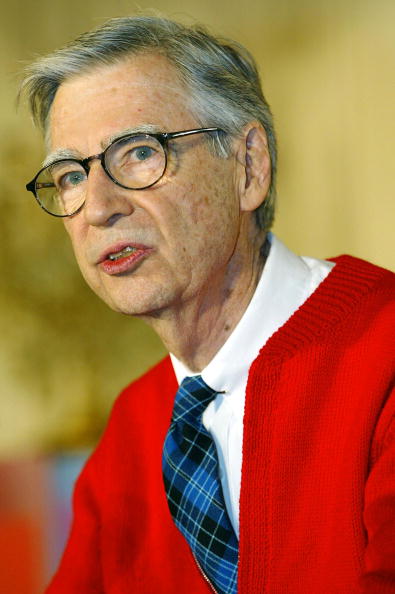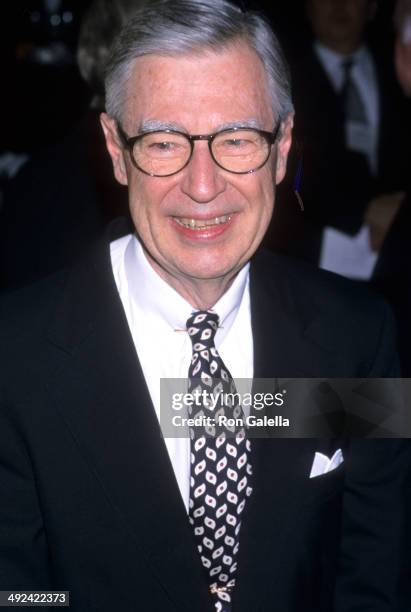Who was Fred Rogers, and why does his legacy continue to resonate with so many people across generations? Fred Rogers, a man whose life was dedicated to nurturing the emotional well-being of children, remains one of the most iconic figures in television history. His work transcended entertainment; it became an educational tool that instilled values such as kindness, empathy, and self-worth. Despite being rooted in simplicity, Mister Rogers' Neighborhood left an indelible mark on American culture.
I’m not a Christian, but it strikes me that Fred Rogers — the ordained minister who created a long-running, completely secular children’s show — embodied principles central to religious teachings without ever explicitly preaching them. The essence of his message was universal: every individual, regardless of age or background, deserves respect and understanding. This philosophy guided everything he did, from writing scripts for his program to interacting personally with fans. Even though Mister Rogers passed away nearly two decades ago, his influence persists through reruns of his shows, documentaries about his life, and ongoing discussions surrounding his contributions to society.
| Bio Data & Personal Information | Details |
|---|---|
| Full Name | Fred McFeely Rogers |
| Date of Birth | March 20, 1928 |
| Place of Birth | Latrobe, Pennsylvania, USA |
| Date of Death | February 27, 2003 |
| Spouse | Joanne Byrd Rogers |
| Children | Two sons: James Byrd Rogers and John Lloyd Rogers |
| Career Highlights | - Television Host - Author - Producer - Presbyterian Minister |
| Notable Works | Mister Rogers' Neighborhood (1968–2001) |
| Net Worth at Death | $3 million (according to Celebrity Net Worth) |
| Reference Website | Wikipedia |
Mr. Rogers’ impact extended beyond the screen into real-world interactions. Stories abound of how he used his platform to advocate for public broadcasting during congressional hearings, ensuring funding for PBS programs. His testimony before Senator John Pastore in 1969 is often cited as a pivotal moment where he eloquently argued for the importance of educational television. With quiet conviction, Rogers explained how his show aimed to help children understand their feelings and develop healthy relationships. His sincerity moved Senator Pastore, securing continued support for public television.
Despite achieving fame, Fred Rogers lived modestly. Unlike celebrities who flaunt wealth, Rogers prioritized his family and community over material possessions. At the time of his death, his net worth was estimated to be around $3 million, a figure that reflects his frugal lifestyle rather than extravagant spending habits. Much of this wealth came from royalties generated by Mister Rogers’ Neighborhood and associated merchandise. However, any financial gains were secondary to his mission of fostering emotional growth in young viewers.
James Byrd Rogers, Fred's eldest son, followed in his father's footsteps by pursuing creative endeavors while maintaining privacy. While less visible in the public eye compared to his father, James has occasionally spoken about growing up under the shadow of such a beloved figure. In interviews, he highlights the values instilled by his parents, particularly the emphasis on treating others with kindness and respect. These lessons have shaped his own approach to life and career choices.
Fred Rogers’ legacy continues to inspire new generations. Documentaries like Won’t You Be My Neighbor? directed by Morgan Neville shed light on aspects of his life previously unknown to casual fans. Through archival footage and interviews with those who knew him best, audiences gain deeper insight into what made Rogers unique. His ability to connect authentically with both children and adults alike set him apart from other television personalities of his era.
Even today, questions arise regarding whether someone like Fred Rogers could exist in modern media landscapes dominated by sensationalism and rapid consumption. Would his gentle demeanor resonate with contemporary audiences accustomed to fast-paced content? Or would his deliberate pacing and thoughtful messaging fall flat against more flashy alternatives? Regardless of these hypotheticals, there is no denying the profound effect Rogers had on millions of lives throughout his career.
His commitment to promoting positive values stands as a testament to the power of media when wielded responsibly. Though Mister Rogers may no longer grace our screens, his teachings endure, reminding us all of the importance of compassion and connection in an increasingly fragmented world. As we reflect on his contributions, perhaps we can find ways to incorporate some of his wisdom into our daily lives, creating ripples of goodness that extend far beyond ourselves.
| Related Information | Details |
|---|---|
| Occupation | Television Host, Author, Producer, Minister |
| Years Active | 1954–2001 |
| Awards | - Presidential Medal of Freedom (1993) - Peabody Award (multiple times) - Emmy Awards (numerous accolades) |
| Influence | Promoting education, emotional intelligence, and community values through media |
| Legacy | Inspiring countless individuals and shaping the landscape of children's programming worldwide |



